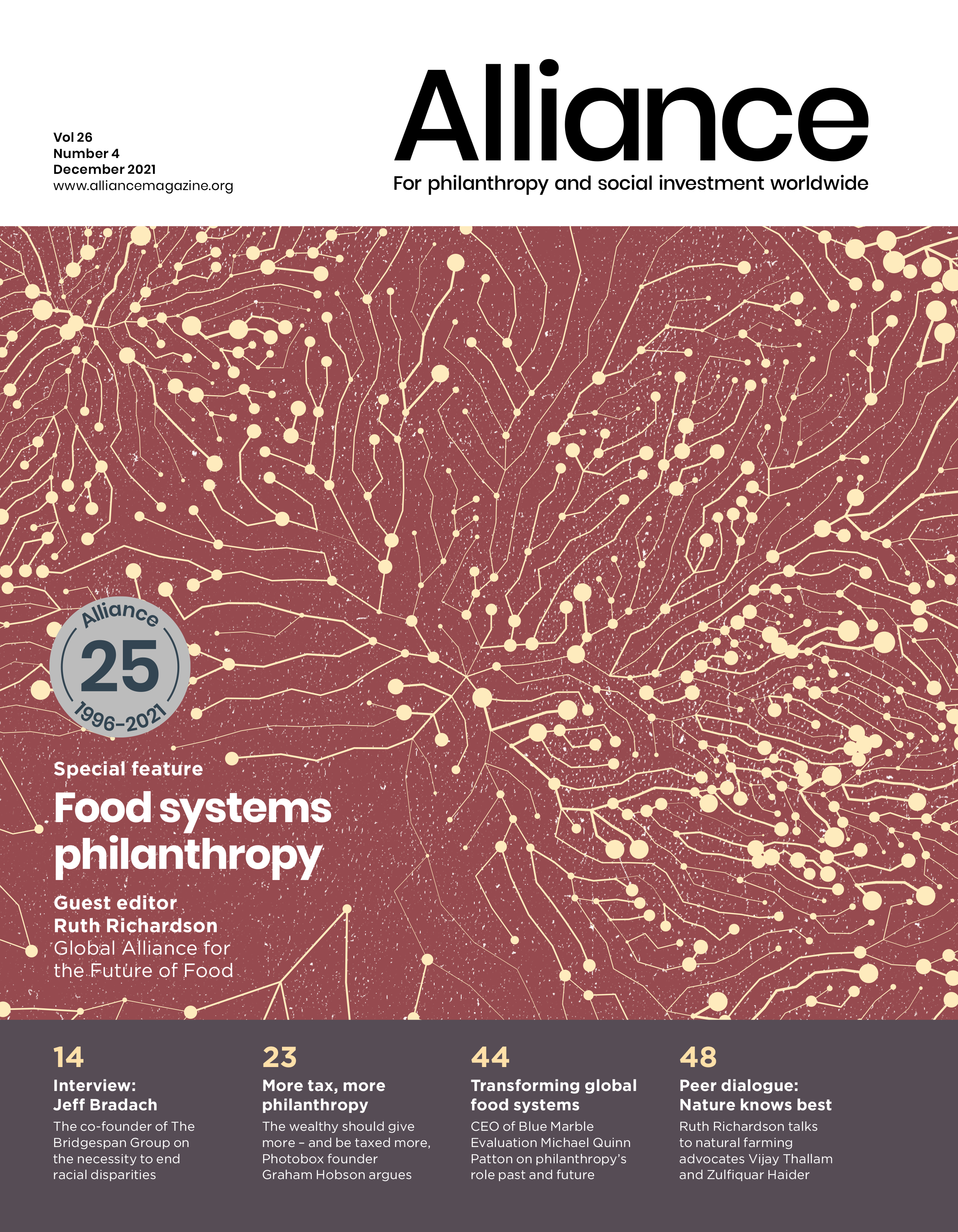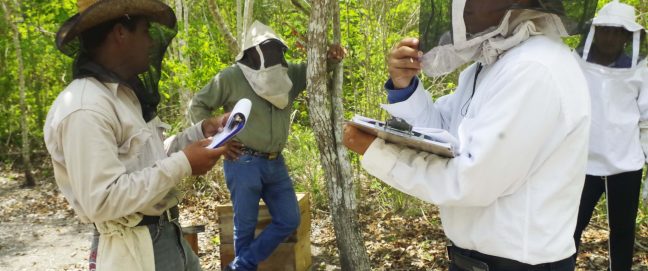Learning from the knowledge of Indigenous Peoples is vital for the transformation of global food systems
In transforming the future of food, funders need to support food sovereignty, agrobiodiversity, and Indigenous Peoples’ food systems that move away from unsustainable agricultural practices and inadequate solutions imposed on them and local communities. Indigenous Peoples’ food knowledge systems have been critical to the preservation of biological diversity. Scientists and many non-Indigenous specialists are progressively understanding the overlap between biodiverse-rich areas, pockets of high cultural diversity and the number of languages spoken. This is leading to the review of conservation and development practices.
The UN Food Systems Summit’s push for member states, philanthropy and the corporate sector to boost nature-positive production and consumption presents a unique opportunity for the philanthropy sector. This is to support the leadership capacity of Indigenous women and youth, develop collaborative and inclusive research and learning platforms for Indigenous Peoples, protect Indigenous Peoples’ food systems, promote their territorial and land rights, support their customary institutions and governance, and improve equity.
One example of an Indigenous-led initiative is The Indigenous Partnership for Agrobiodiversity and Food Sovereignty (TIP) established in Cuzco, Peru in 2010. It received support from The Christensen Fund (TCF) and was encouraged by the International Funders for Indigenous Peoples (IFIP). TCF has been supporting TIP to forge new intercultural solutions based on both modern and traditional knowledge. TIP has pioneered Indigenous Peoples Food Festivals in Mongolia, Thailand, India, Kenya and at the UN Headquarters, New York. The acclaimed four-day Indigenous Terra Madre (ITM) 2015 in Shillong, India, included the Slow Food International in which 148 Indigenous communities from 48 countries participated. TIP has raised awareness, corrected misinformation and built solidarity networks through hundreds of workshops, dialogues and other events. It has commissioned research and collated case studies on the principles of intercultural agroecology and Indigenous well-being.
Subscribe now from only £45 a year!
This article is only available for our subscribers
Existing users can login here





